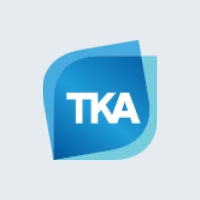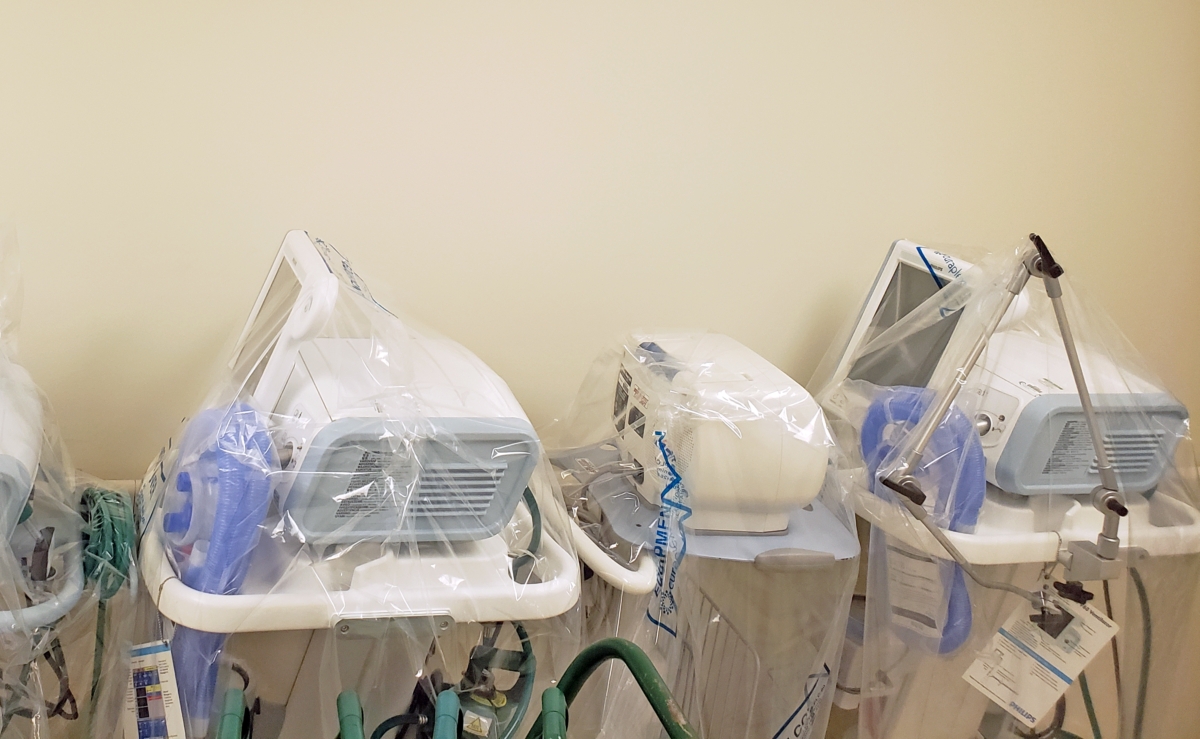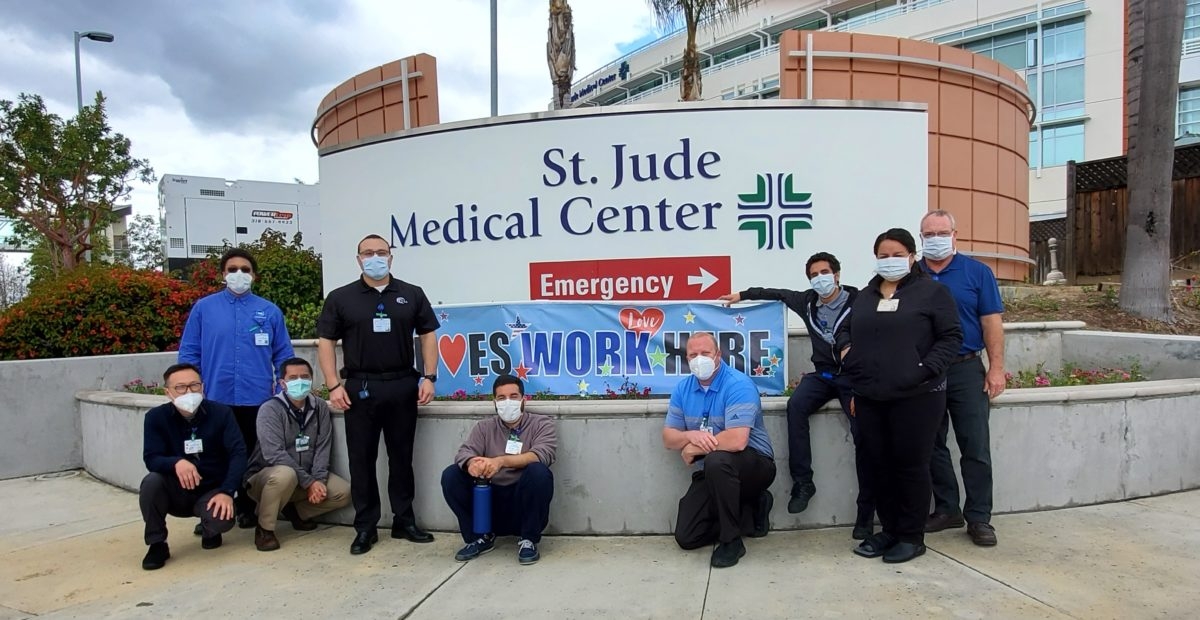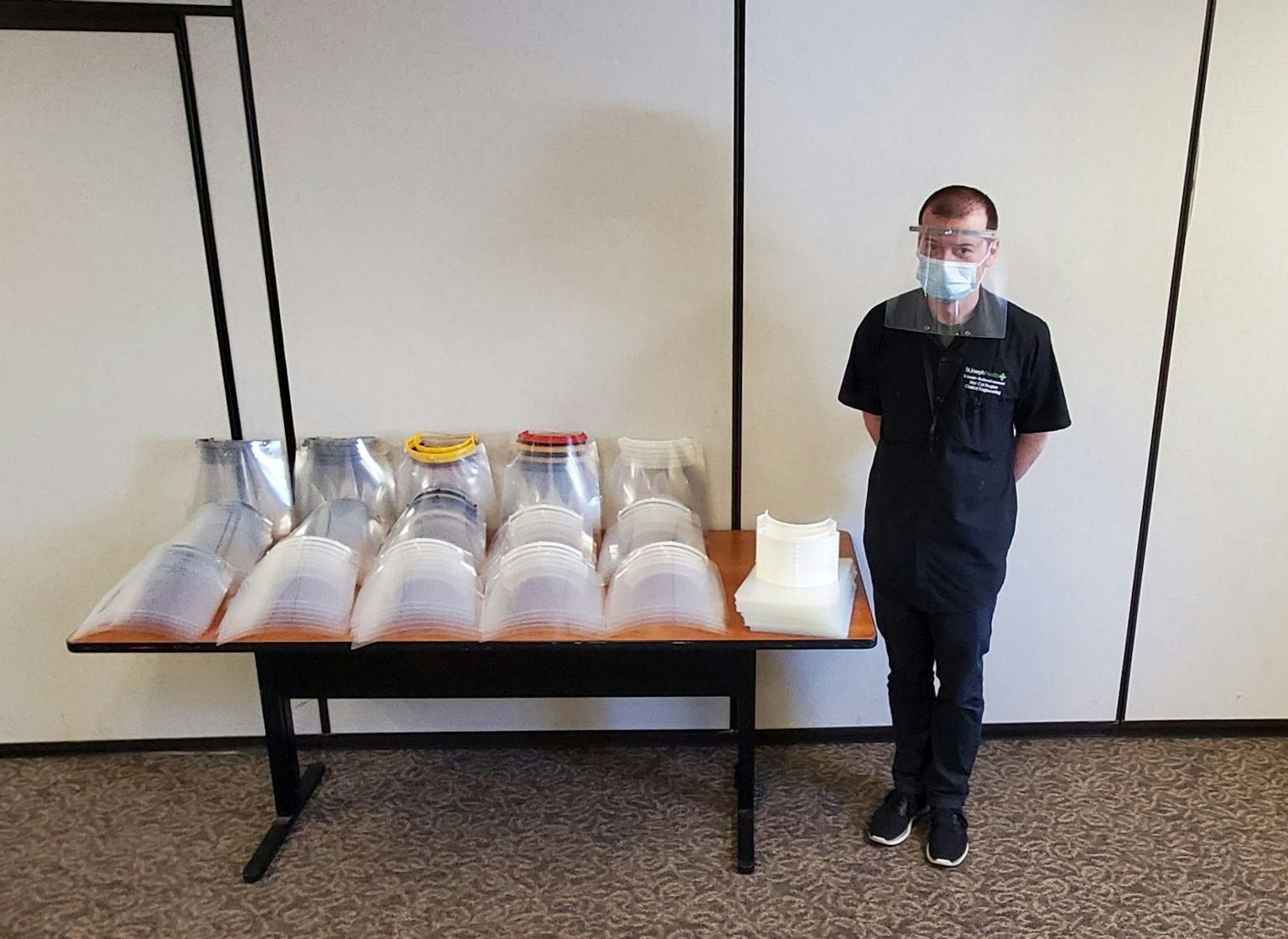Every day, we learn something new and unexpected about the unfolding coronavirus pandemic. But one thing was certain from the beginning: maintaining social distance and following cleanliness protocols – from our daily lives to our medical facilities – is critical to curbing COVID-19’s spread.
Since providers generally can’t treat patients from 6 feet away and supplies of Personal Protective Equipment are limited, it’s becoming increasingly essential that hospitals disinfect and sanitize healthcare devices to exacting industry standards.
Indeed, new recommendations aimed at reducing the risk of COVID-19 exposure among employees at medical device manufacturers specifically call out the need to “regularly clean and disinfect surfaces, equipment, and other elements of the work environment,” according to the U.S. Food and Drug Administration’s Center for Devices and Radiological Health. The agency even cites the Environmental Protection Agency’s list of disinfectants to use against the novel coronavirus.
At TKA, that’s what we do every day. While a major part of our healthcare technology management business supports our partners by maintaining medical equipment, our innovative READI Program – which stands for Reliable Equipment Available Disinfected Inspected – takes on the hour-by-hour responsibility of keeping equipment clean, ready to use, and available throughout a hospital.
Even before the pandemic, managing equipment was costly for hospitals, and ineffective internal processes left staff dissatisfied, putting patient safety at risk. COVID-19 puts new pressures for disinfecting protocols and virus control. With READI taking on that concern (and worry), hospitals can focus on taking care of patients.
Think about the heavy demand for ventilators to treat COVID-19 patients, the resulting shortage and the contamination concerns that are likely to pop up as a result. New York, which is reaching its peak earlier than most states, even approved an adaptive use to share its ventilators between two patients.
Given the highly contagious nature of COVID-19, can you afford not to invest in every best practice?
We are the experts
The READI Program builds on the integrated services we offer as a healthcare technology management provider. Our partners recognize that our people can step right in and have an immediate impact. Attention to detail, problem-solving and mission-focused work is engrained in our DNA. We know that our work is an underpinning to giving patients the best outcomes. Your mission is our mission.
Our READI biomedical technicians bring the right expertise and industry best practices to disinfect – and then validate – medical devices, reducing a big risk in the healthcare environment. Because our people work with devices from every major manufacturer, they know the recommended cleaning standards.
Unfortunately, many hospitals delegate cleaning medical devices to their housekeeping or Central Supply teams, who don’t have the knowledge, time or expertise on how to disinfect specialized equipment. It’s not their priority, nor is it their concern. These crews often use harsh chemicals and liquids that can damage and even destroy sensitive equipment. For example, they might know that bleach kills nearly every germ – but they may not be aware that bleach can eat away at plastic components, shortening the life span of much valuable equipment.
And today’s medical devices are getting increasingly more sophisticated. Yesterday’s equipment might have been manually operated; now it’s produced with an electronic keyboard. A mix of cleaning products and tactics might be required to appropriately disinfect the modern device. Rarely does a hospital have the budget to replace equipment damaged by an untrained staff member who shouldn’t have been asked to handle that responsibility.
Equipment readiness is a never-ending cycle
TKA’s READI associates close another major risk gap, which is moving sanitized devices throughout the hospital. Wards often share common equipment, including wheelchairs, infusion pumps and pulse oximeters, and providers can be tempted to grab whatever they find. In the moment, they might not realize that that equipment might have been just moved from a patient’s room and not yet decontaminated.
Under normal, non-pandemic circumstances, on a given day, one in 31 patients is transmitted a hospital-acquired infection. We know that shared equipment that hasn’t been adequately cleaned between patients can be a contributing factor, but the right process can reduce that risk. Even if our READI team is called to deliver a device in storage, the process is to validate its sanitation record to ensure readiness for that next patient.
READI’s comprehensive documentation introduces accountability, so you know the status and precise location of every piece of equipment across your facility. That delivers big wins for your internal Risk Management and Finance teams. Our READI techs also bring an added layer to TKA’s maintenance activities, as they can handle minor fixes or recommend equipment for repairs before a somewhat-small problem puts a patient’s life at risk.
Put us to the test
Quality medical care builds on a hospital’s adherence to best practices in sanitation. As we continue to fight COVID-19, our efforts to reduce its spread get even more urgent. The READI program offers a structured process that keeps your medical devices cleaned, ready and accessible – a critical differentiator in today’s high-stakes environment. Let TKA demonstrate how our READI program can deepen your confidence in critical equipment, while reducing risks, saving costs and improving patient outcomes.



